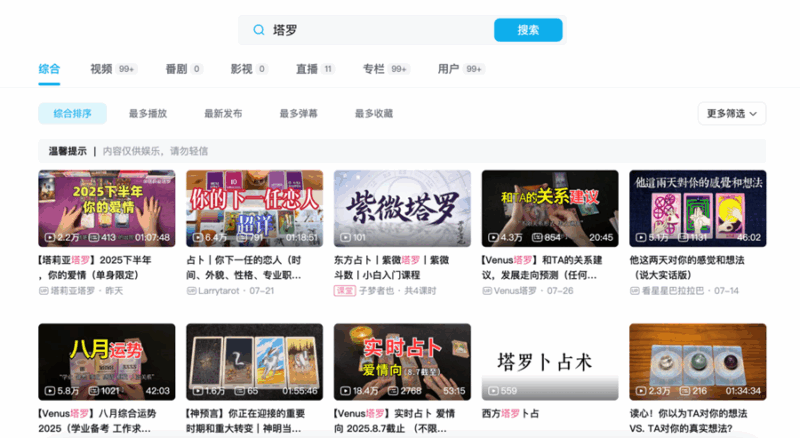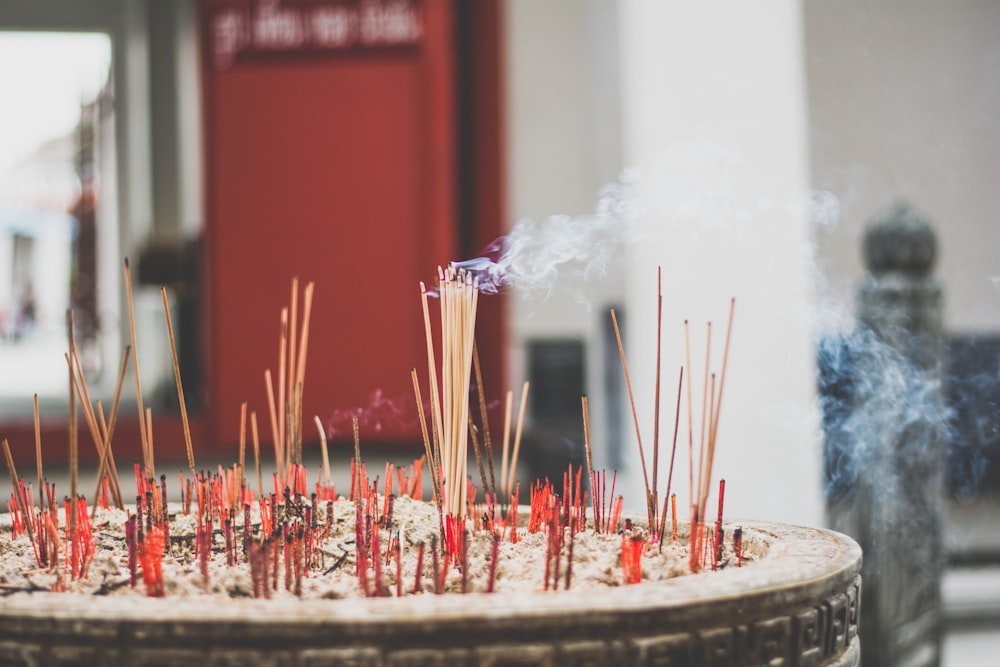In recent years, Xuanxue (玄学), an esoteric discipline rooted in Chinese philosophy, has become a powerful driver of the growing spiritual economy in China. Xuanxue is an ancient cultural tradition, dating back to Wei and Jin dynasties in ancient China. It covers many fields, such as numerology, feng shui, divination, etc., and synthesizes the teachings from Confucianism, Taoism, and other philosophical teachings. On Xiaohongshu, the hashtag #Xuanxue had garnered 4.5 billion views and sparked 65.6 million posts by July 2025. Alongside this traditional mysticism, trends such as zodiac signs, tarot readings, and wearing specific ornaments have “luck-changing” accessories have gained traction under the umbrella of Cyber Xuanxue, a modern spin on ancient beliefs.
Xuanxue as emotional support
Xuanxue, as an invisible mystical power, is now attracting huge attention from young people. It may be difficult to verify its evidence, but there must be reasons for the popularity of this trend. In contemporary society, young people face an increasing number of uncertain factors, adding to the pressure of academic pursuits and the search for emotional grounding. Xuanxue, as an invisible mystical power, is now attracting huge attention from young people. It may be difficult to verify its evidence, but there must be reasons for the popularity of this trend.
As such, Xuanxue offers them a rationale to alleviate internal conflicts. Certain frustrations are attributed to phenomena like “Mercury Retrograde”(水逆) and “feng shui,” providing explanations for otherwise indigestible anxieties. Utilizing the Barnum effect makes it possible to recognize that people are inclined to believe in generalized statements. In times of helplessness and confusion, individuals seek solace through fortune-telling and similar practices. The broad and ambiguous advice provided by metaphysics allows them to instinctively filter out information that does not resonate with their experiences, offering a semblance of guidance amidst uncertainty.
Social media drives the buzz
Social media has propelled the spiritual economy. A plethora of successful instances of wishful thinking online has drawn in more individuals seeking to alter their fortunes through Xuanxue practices. Furthermore, the growth of the associated economy has captured the attention of a broader audience. The surge in temple economies has infused traditional and solemn temples with a youthful and vibrant atmosphere. Various ancillary sales and temple cafes have emerged, bridging the gap between young people and these sacred spaces. Additionally, while not everyone may be deeply engaged in the spiritual economy, many are still enticed by the allure of jewelry and ornaments associated with it, leading them to purchase related items.
How young Chinese are turning to spiritual solutions
As the spiritual economy in China gains traction, related businesses are naturally experiencing a surge in popularity. In a survey published by the Chinese Academy of Social Sciences in 2025, 68% of people aged 18 to 35 believed in at least one Xuanxue principle.
Temples: young people’s luck haven
The temple, once primarily frequented by middle-aged and elderly individuals, now sees an influx of young people praying for good fortune. The temple market is growing at a rapid pace, reaching RMB 90 billion (USD 12.4 billion) in 2023 and projected to exceed RMB 100 billion (USD 13.96 billion) by 2025. This growth is due to people’s demand for spiritual comfort and emotional support; consumers are willing to pay for the cultural products for their emotional value. Beyond the traditional revenue resources temples gather like entrance fees, the economy has new products to offer to the younger demographic such as magnets, canvas bags, prayer bracelets and protective amulets. These products often become trendy on social media which draws more people to visit temples. One of the most famous religious temples in China is Mount Emei, bringing in RMB 820 million (USD 114.3 million) annually.

Digital spirituality and the rise of Cyber Xuanxue
Cyber Xuanxue (赛博玄学) has long been a favored avenue for young people when it comes to accessibility of spiritual practices. For students and office workers alike, it presents the most efficient use of time and finances. Good-luck memes and profile picture alterations have gained traction among the youth, who believe such changes can attract love and prosperity effortlessly, and this has become one of the methods of Zhuanyun 转运 (change of luck). With the rise of artificial intelligence, more people are turning to chatbots for personalized spiritual guidance over hiring an actual person.
In the contemporary era, Cyber Xuanxue stands as the dominant force. Astrology and tarot transcend mere superstition, akin to the ubiquitous incense and bracelets found in temples, addressing the emotional needs of today’s youth. The rise of this wave has also led to the popularity of many astrological and tarot bloggers, who provide daily horoscope predictions and recommend lucky items according to the horoscope and have gained extremely high attention on social media.
The two most famous social media platforms for finding online divinations are Xiaohongshu and Bilibili. PR actioners and self-proclaimed “healers” upload divination videos. For example, on Bilibili there is an event called dazhong zhanbu (大众占卜)which translates to mass divination; this content usually involves tarot reading and other divination cards. The mass divination sessions usually follow a routine of a psychic asking the audience to choose a card from several options, and interpreting the card drawn anywhere from yes or no questions to in depth analysis of a specific question.

The rise of AI fourtune telling
According to the “2024-2025 China AI Metaphysics Market Development Research Report” released by iiMedia Research, the AI powered divination and spirituality market has surpassed RMB 12 billion (USD 1.67 billion), with an annual growth rate of 43.7% and more than 70% of users in this market are aged 18-30. The rise of Cyber Xuanxue is due to the demand of fortune customization at a low cost. For example, DeepSeek draws on an extensive database combined with modern models such as MBTI to generate an answer that covers dimension such as career, emotion and health.
What you need to know about the Chinese spiritual economy
- The spiritual economy in China has surged in popularity across the Internet, captivating a substantial audience of young individuals seeking comfort in an uncertain time.
- Social media have propelled the spiritual economy forward, bringing in the attention of a broader audience.
- Temples are experiencing a shift in demographics as they attract not only the middle-aged and elderly but also the younger consumers, who now purchase a variety of bracelets to seek blessings for good fortune.
- The accessibility and affordability of Cyber Xuanxue/using AI for fortune telling have attracted a significant following among young people, leading to thriving communities and benefiting relevant bloggers.
- Xuanxue serves as a psychological haven for young individuals, helping them alleviate internal psychological friction and find answers to their questions.





